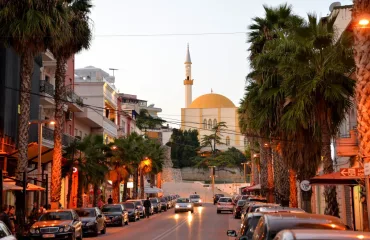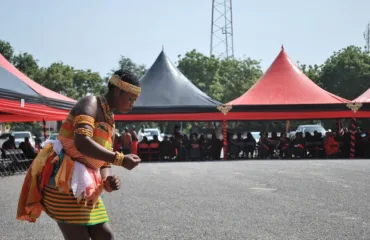
Discover Cultural and Heritage Tourism in Ghana
Ghana is one of West Africa’s most captivating destinations, celebrated for its rich culture and deep historical roots. For travellers seeking to explore African heritage and ancestry, Ghana offers an experience that is both enlightening and unforgettable. This guide will help you understand what makes heritage tourism in Ghana so special and why it continues to attract visitors from across the globe.
A Little Bit About Ghana
Ghana, a former British colony, gained independence in 1957 and has since become a beacon of democracy and development in Africa. Home to over 30 million people, the country boasts diverse landscapes, from golden beaches and tropical rainforests to sprawling savannahs. Its historical landmarks, including the Asantehene Palace, Elmina Castle, and Kumasi Fort, tell stories of resilience and cultural pride.
Located on the Gulf of Guinea, Ghana combines natural beauty with vibrant urban life. Visitors can enjoy sun-soaked beaches, lively cities, and the warmth of its people. The country’s stability and welcoming atmosphere make it an ideal destination for those seeking authentic cultural experiences.
Tourism in Ghana
Tourism in Ghana is a growing industry, supported by the Ministry of Tourism, which works to develop attractions and promote cultural heritage. Travellers can enjoy a wide range of experiences, from historical tours to wildlife safaris and cultural festivals. Mole National Park, for example, offers the chance to see elephants, antelopes, and other African wildlife in their natural habitat.
For those interested in history, Ghana’s forts and castles provide a sobering yet essential insight into the transatlantic slave trade. Sites such as Cape Coast Castle and Elmina Castle are UNESCO World Heritage Sites and serve as powerful reminders of the past. Guided tours through these monuments offer context and stories that deepen understanding.
What Is Heritage Tourism?
Heritage tourism focuses on exploring a country’s culture, history, and traditions. It allows travellers to connect with local communities and appreciate the customs that have shaped a nation’s identity. Heritage tourism in Ghana is thriving, offering visitors opportunities to experience traditional life, learn about historical events, and celebrate cultural achievements. From visiting rural villages to exploring museums, heritage tourism in Ghana provides a meaningful way to engage with the country’s past and present. It also plays a vital role in preserving traditions and supporting local economies.
Key Heritage Attractions in Ghana
Ghana’s cultural heritage is vast, and its attractions reflect centuries of history and artistry. Here are some highlights:
- Cape Coast and Elmina Castles: These historic forts were central to the transatlantic slave trade. Today, they stand as monuments of remembrance and education.
- Asantehene Palace Museum: Located in Kumasi, this museum showcases the history of the Ashanti Kingdom and its influence on Ghanaian culture.
- National Museum of Ghana: Situated in Accra, it offers exhibits on archaeology, ethnography, and art, providing a comprehensive view of Ghana’s heritage.
- Traditional Villages: Visiting communities in the Volta Region or Northern Ghana allows travellers to experience local crafts, music, and daily life.
Festivals That Celebrate Heritage
Ghana’s festivals are vibrant expressions of culture and history. They offer visitors a chance to witness traditional ceremonies, music, and dance. Here are some notable events:
- Homowo Festival: Celebrated by the Ga people in Accra, this harvest festival honours ancestors and features drumming, dancing, and feasting.
- Akwasidae Festival: Held by the Ashanti people, this festival pays tribute to their kings and ancestors, showcasing regal traditions and colourful attire.
- Chale Wote Street Art Festival: A modern celebration of creativity in Accra, blending art, music, and performance with cultural heritage.
- Odwira Festival: Observed in the Eastern Region, this festival focuses on spiritual cleansing and thanksgiving during the harvest season.
- PANAFEST: The Pan-African Historical Festival commemorates emancipation and promotes unity among people of African descent. It includes lectures, performances, and symbolic events at historic sites.
Activities for Heritage Tourism in Ghana
Heritage tourism in Ghana goes beyond visiting monuments. Travellers can engage in activities that bring culture to life:
- Participate in traditional drumming and dance workshops.
- Learn local cooking techniques and taste authentic Ghanaian dishes.
- Explore craft markets to see pottery, weaving, and wood carving.
- Join guided tours that explain the significance of historical landmarks.
These experiences create lasting memories and foster a deeper appreciation of Ghana’s cultural richness.
Practical Tips for Your Heritage Journey
To make the most of your trip, consider these tips:
- Best time to visit: November to March offers pleasant weather and vibrant festivals.
- Health precautions: Vaccinations for yellow fever and malaria prevention are essential.
- Cultural etiquette: Dress modestly for traditional events and learn basic greetings in local languages.
- Travel style: Escorted tours provide expert guidance and ensure a safe, enriching experience.
Conclusion
Heritage tourism in Ghana is more than a holiday, it is a journey into history, culture, and identity. From exploring castles that shaped global history to joining festivals that celebrate resilience and creativity, Ghana offers experiences that educate and inspire. Whether you are tracing ancestral roots or simply seeking authentic encounters, this country welcomes you with open arms.
So, pack your curiosity and let Ghana reveal its stories. Every step you take uncovers a piece of heritage that connects the past with the present, making your journey truly unforgettable.



